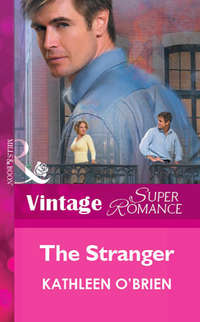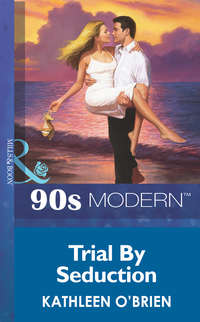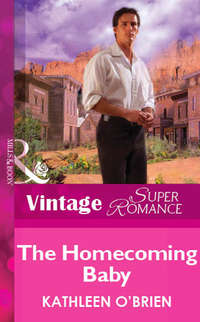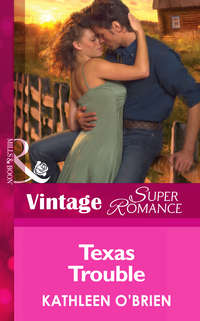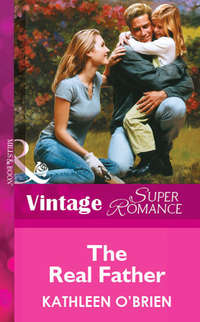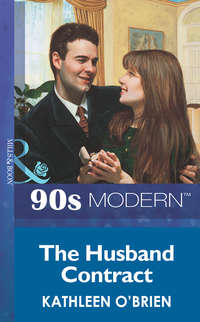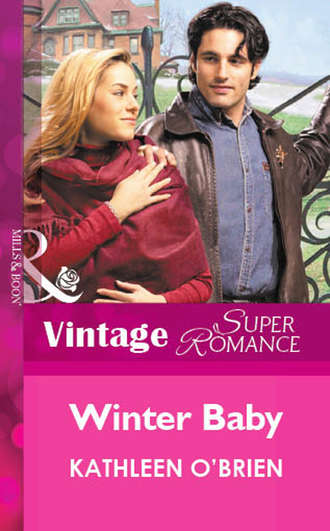
Полная версия
Winter Baby
Her memories of that summer were emotional and confused, but they were surprisingly happy. Long, green afternoons walking with Uncle Ward in the town square, hearing rather scandalous stories of Firefly Glen’s history. Talking with him late at night in the library of his fantastic Gothic mansion, huddled over lemonade and popcorn and chess, and feeling understood for the first time in her life.
He was acerbic and affectionate, hot tempered and honest, and she had adored him. In August, her mother had collected her—in the Cadillac, of course. Her mother was very good at divorce, and would only get better with each failed marriage. Sarah’s life hadn’t allowed another long visit, but to this day, when she wanted to speak the truth—or hear it—she had called her Uncle Ward.
He and Firefly Glen had restored her then. Perhaps they could do the same now. She picked up the telephone. Surely somewhere in that gentle valley town, amid all that snowy silence, she could figure out what to do with her life.
CHAPTER TWO
AT EIGHT-THIRTY on Christmas Eve, both downtown streets of Firefly Glen were wet with an icy sleet, the shining asphalt crisscrossing at the intersection like two ribbons of black glass.
The temperature on the bank clock said twenty-nine degrees, but the garlands strung between the streetlights had begun to swing and twinkle, which meant the mountain winds had found their way through Vanity Gap and into the Glen. Sheriff Parker Tremaine, who was headed toward the large red-brick City Hall at the end of Main, huddled deeper into his fleece-lined jacket and decided that the real temperature was probably more like two below.
Still he took the street slowly. Every couple of minutes a car would crawl by, and the driver would wave or honk or even pull over to offer Parker a ride. But Parker would shake his head and wave them on. Call him crazy, but he wanted to walk.
He liked the cold, liked the swollen bellies of the clouds overhead—they’d probably deliver snow by morning. He liked the pinpricks of sleet against his cheeks and the tickle of wool against his ears.
He liked the peace of the hushed streets. He liked the way the stained-glass windows of the Congregational Church beamed rich reds and blues into the darkness.
Most of all, he liked knowing that most of the 2,937 “Glenners,” whom he’d been hired to protect, were safely tucked in for the night. The rest, the Fussy Four Hundred, as they were known in the Sheriff’s Department, were gathered in the assembly room of City Hall for an ice festival planning session.
Parker, who had just responded to a prowler call at the park—a false alarm, of course—was a little late to the meeting, which had begun at eight. By now the planning session had probably escalated from civilized discussion to hotheaded shouting, and Bourke Waitely was undoubtedly brandishing his cane like a weapon.
But the image didn’t make Parker hurry. As long as he got there before nine, he’d arrive in time to forestall any actual violence.
And when it was all over, he’d be off duty, and Theodosia Graham, who owned the Candlelight Café, had a hot, thick slice of pumpkin pie waiting for him.
“You’re one damned lucky man, Tremaine.”
Realizing he’d spoken out loud, Parker had to laugh. The chuckle formed a small white puff in the icy air, like a visible echo.
Lucky? Him? That was pretty damn funny, actually.
He was the thirty-four-year-old divorced sheriff of a tiny Adirondack town that gave bad winters a new meaning, and he was looking forward to spending Christmas Eve alone with a seventy-five-year-old spinster and a piece of pie.
Plus, apparently he’d begun talking to himself on the sidewalk, which back in Washington, D.C. would have scared all the other pedestrians into crossing the street.
Who in his right mind would call this lucky? He looked at himself in the window of Griswold’s Five and Dime. The only guy out here, shuffling along in a freezing rain, no wife waiting at home, no kids dreaming of sugarplums, not even a girlfriend dreaming of a diamond. The textbook illustration of a loser.
So what the hell did he have to be so smug about?
Nothing. He grinned at the guy in the window. Nothing except for the fact that, after twelve years of exile, he was home again. He had ditched a career he hated, even though everyone told him he was crazy to give it up. And the beautiful, bitchy wife he couldn’t please had finally ditched him, though everyone had told him he was nuts to let her go.
But he didn’t care. He liked being alone, and he liked being the sheriff of Firefly Glen. In fact, he was so damn pleased with his life that he decided he’d give Theo Graham a great big sloppy Christmas kiss.
“Sheriff! Sheriff, come quick! It’s an emergency!”
Parker looked over toward the emphatic voice. It was Theo. She had climbed down onto the front steps of City Hall, and she was leaning forward into the wind, her sweater wrapped tightly but inadequately around her bony shoulders.
He loped up the icy steps carefully, wondering what the problem was. Could he have misjudged the timing? Could Bourke Waitely actually have thumped someone with his cane? God, he hoped it hadn’t been Mayor Millner. Alton Millner would slap Waitely in jail just for the fun of it.
“What’s happened, Theo?”
“It’s Granville Frome,” Theo said as they hurried through the doors. “He was boring everybody to tears with tourism figures, you know how he is. So Ward Winters called him a greedy little pea-brain, and before you could say ‘stupid old coot’ Granville came around the table and knocked Ward to the floor. They were still down there, wrestling like a couple of crazed teenagers, when I came out to look for you.”
Parker shook his head. Ward Winters was usually smarter than that. Everybody in Firefly Glen knew that Granville Frome, who owned half the downtown property, wasn’t a greedy little pea-brain. Frome’s brain was much bigger than a pea, and his ego was considerably larger. And his temper was bigger still.
The scene inside was pure melee. So many people were standing around, waving their arms and shouting, that Parker had a hard time finding Ward and Granville. Finally he pushed his way through to the center of the room, where he saw the tangle of flannel and denim, long, bony limbs and mussed silver hair that constituted the two elderly combatants.
Granville’s grandson, Mike Frome, was leaning over the two old men, begging his grandfather to stop and plucking at any arm or leg that stood still long enough. Mike looked up as he saw the sheriff enter the room, and Parker could tell that the teenager had received a shiner for his efforts. Poor kid. He’d look like hell by morning.
“Sheriff! I’ve been trying—”
“Greedy son of a bitch!”
“Cave-dwelling Neanderthal!”
“Oh, God, Granddad, stop. Please, just stop!” Mike looked harried and embarrassed. “He won’t listen to me, Sheriff.”
“He probably can’t hear you.” Parker pointed to a couple of other men. “Sam. Griffin. Give us a hand here.”
It was a struggle, but the combined efforts of the four relatively young males finally pulled the two old scrappers apart. And then it took all four of them to keep them separated—two on Ward, two on Granville. The old men glared at each other, their chests heaving and their arms still straining to land one more punch, until gradually their breathing slowed.
Parker, who was in charge of Ward’s right arm, felt the slow return of common sense. The shoulder relaxed slightly, and the fist dropped to the old man’s side.
“Oh, all right, damn it,” Ward Winters said gruffly. “You can let go now. I won’t kill the stupid son of a—”
“You couldn’t kill me if you tried, you pathetic old bastard!”
The four guards tightened their grips as Granville Frome tried to lunge forward once again. Parker glanced over at Mike, who held his grandfather’s left shoulder in a determined clutch. “Mike, can you get him home?”
Mike nodded. He turned to Granville. “Grandmother is going to be really mad,” he said. “You promised her you’d behave if she let you come tonight.”
Ward Winters made a scoffing noise. “I should have known you’d let your wife tell you what to do, Granville, you pitiful little—”
Parker let his hold on Ward’s elbow tighten painfully. “Enough,” he said firmly, and Ward subsided with a low, unintelligible muttering.
Parker turned to the crowd. “This meeting is over, folks,” he said, raising his voice to be heard over the din. “The weathermen are calling for six inches by sunup. Might be a good idea for everyone to head on home now.”
No one resisted, but still it took a while. Goodbyes between friends were slow, with warm Christmas messages sent home to loved ones. Between enemies, parting was even slower, with all parties vying to have the last word. And then it took forever for coats, scarves, hats and mittens to be divvied up and donned.
While Ward and Parker stood there, about ten women—all between the ages of sixty and eighty—stopped to be sure Ward was all right. Parker had to smile as he watched the ladies fuss over the old guy, smoothing his thick shock of wavy white hair, tenderly brushing dust from the sleeve of his blue flannel shirt and offering to deliver everything from aspirin to chicken soup in the morning.
Ward, whose lanky good looks had attracted women like this for most of his seventy-seven years, brushed them all off brusquely, but Parker noticed that a subtly flirtatious charm lay beneath the gruff exterior.
Add that to his mansion and his millions, and it was no wonder the ladies were enchanted. Roberta Winters, Ward’s wife, had died last year, and the women of Firefly Glen were lined up at the gate, hoping for a chance to be the next Mrs. Winters.
Parker wished them luck. But he had a feeling that Ward would be single for a long time. There weren’t many women in Firefly Glen—or in the entire world, for that matter—who could compete with Roberta Winters.
“So tell me the truth,” Parker said as he and Ward ambled out of the nearly empty meeting room. “Why are you so hell-bent on stopping the ice festival?”
Ward winced as he shoved his hand into his glove. “That blasted fool damn near broke my wrist.”
Parker let the silence stretch, waiting for his answer. Finally Ward turned to him with a scowl. “Why do I want to cancel the festival?” He growled under his breath. “Because I don’t want a bunch of morons crawling all over my town, clogging my streets and my air with their dirty cars. I don’t want the café crammed with their slobbery children. I don’t want to have to fight through a noisy horde of them to buy a stamp at Griswold’s. I don’t want to find them tramping across my lawn taking pictures of my house—my private house!”
He pulled his muffler tight around his neck, achieving an amazingly rakish look for a man his age. “And I damn sure don’t want them to move here. I don’t want them thinking that pretty patch of woodland over by Llewellyn’s Lake would be the perfect spot for their tacky new mansion.”
Parker chuckled. “You know, Ward, two hundred years ago the land where Winter House stands was probably forest, too.”
“I don’t care.” Ward waved his hand, then winced. His wrist must really be hurting him. “I don’t want them mucking up my town.” They were passing the one bar approved by the cautious city council, and Ward jabbed his forefinger toward its sign irritably. “Look at that! Cricket’s Hum Tavern? What the hell kind of name is that? Ever since we’ve started bringing in the tourists, we’ve become so damn cheesy I could just throw up.”
He started reading the signs as they walked. “Frog’s Folly Children’s Fashions. Candlelight Café. Black Bear Books. Duckpuddle Diner.” He made a face. “Duckpuddle Diner?”
“Yeah, I thought that one was a little much myself.”
“Well, if we’ve already sunk to Duckpuddle Diner, can Sweet Sally’s Smut Shoppe and the Lorelei Land-fill be far behind?”
Ward wasn’t really expecting an answer, and Parker didn’t give him one. He knew it was a legitimate debate, whether the town leaders should go looking for growth and prosperity or whether they should concentrate on keeping Firefly Glen safe and clean—and small.
The argument had been going on for two hundred years, and it wasn’t going to be solved tonight.
Besides, it was cold, it was late, and the two of them were basically on the same side of the debate anyhow. The Tremaine clan had been living in Firefly Glen just as long as the Winters family, and Parker’s love for this town was every bit as possessive and protective as the old man’s could ever be. Maybe more—because Parker had tasted life away from Firefly Glen, and he had found it bitter.
They reached Ward’s car just as the church bells rang out ten o’clock. Both men stood quietly, listening to the clear tones echo in the crisp silence of the Christmas air. The first few drifting flakes of snow fell slowly around them.
“You’re a good man, Parker,” Ward said suddenly. “I’m glad you decided to come home. And you’ve been a good sheriff, even if you were one of those damn political appointees, which are usually just about worthless.”
“Thanks.” Parker smiled, surprised. Even that backhanded compliment was uncharacteristically effusive for his crotchety friend. Had the sweetness of Christmas bells softened the old man up, or had Granville Frome landed a big one to Ward’s head?
Anyhow, it was ironic that Ward should say such a thing, on this same night when Parker had already been feeling so lucky. “Me, too. I like it here. I wasn’t sure, when I first came back. You know, after being in Washington. And I knew how Glenners felt about political appointments. But I like being the sheriff.”
“Yep. I thought you did.” Ward sighed. “That’s why I think it’s a damn shame your own brother-in-law would be such a son of a bitch as to run against you.”
Parker frowned, completely confused. His own brother-in-law…run against him…for what? He squinted. “What are you talking about?”
“About that snake Harry Dunbar.” Ward pointed toward the front window of the stationery store, which was run by Parker’s younger sister, Emma Tremaine Dunbar. “Sorry, son.”
And right there in the window, next to the display of Christmas cards and smiling Santas, was a sign. A campaign poster, to be precise.
Vote Dunbar For Sheriff, it said in red, white and blue letters. Because It’s Time For A Change.
SARAH GUIDED HER RENTAL CAR slowly, making her way through the sharply twisting curves of Vanity Gap without a lot of confidence. This wasn’t at all like driving in Florida. The narrow path was closely bordered by rugged, ice-capped granite walls, and though the road had obviously been cleared lately, new snow was already falling, obscuring the tarmac.
Now and then the granite walls would part, giving her a dizzying view of the steep mountainside that brought on a fierce wave of morning sickness. She tried to keep her eyes on the road, her breakfast down and her courage up. But what, oh, what had made her think she could handle this?
She had hoped to get here in time to spend Christmas with her uncle, but the details had swamped her. Arranging for a six-week leave of absence from her teaching position hadn’t been easy, and then the minutiae of closing down her apartment—stopping mail and electricity, farming out plants, throwing out food and saying goodbye to friends—had seemed to take forever.
Still, she had managed to free herself by New Year’s Day, which had felt like a good omen. The perfect time to be making a new start.
She had landed at the Albany airport this morning with fairly high hopes, but now, after two hours of mountain driving, she was beginning to wonder whether she should have stayed in Florida. What exactly had she accomplished by running away? And why here, so far from home and everything she understood? What if her memories of Firefly Glen were romanticized by time and youth? What if it was just a grim, bleak, cold little hole in the mountains?
All of a sudden, like a spectacular surprise designed by a movie director, her car finally broke through the gap, revealing the valley below.
Sarah pulled onto the overlook, letting the car idle as she stared, utterly enchanted. Firefly Glen lay before her like a toy village arranged on a coffee table, too perfect to be true.
It was a clear, crisp morning, the sun round and winter-white. The snow glistened like crushed diamonds on the branches of trees, the rooftops of houses and the steeples of the churches. That tall one, on the eastern edge of town—that was the Congregational Church, Sarah remembered suddenly. The golden bells in that steeple had rung out the hours here for more than two hundred years.
The whole village was heavily wooded, as if it had nestled itself into these mountains back in the 1700s without disturbing a single leaf. On the western border of town, the Tallulah River winked in and out of white-frosted elms and hickory pines like a ribbon of silver sequins.
The entire scene exuded beauty, permanence and peace. Sarah leaned her head against the car window, overcome by a strange sense of longing. It would be good to belong to a place like this.
But she didn’t. She wasn’t sure she belonged anywhere anymore. Suddenly she felt intensely isolated here on this mountain, removed from the simple charm of Firefly Glen, exiled from those solid, cozy homes with soft gray plumes of smoke rising from their red-brick chimneys.
Alone. She fought back stupid tears and uncomfortable nausea with equal determination.
It’s hormones. Just hormones, she reminded herself bracingly. Everyone knew that pregnant women were irrationally emotional. She had to stop giving in to it, stop this maudlin self-pity. She was alone on the mountaintop only because she had stopped to appreciate the view.
But the nausea…
That was very real.
She stumbled out of the car and lurched over toward the trees, her boots crunching on snow. In spite of the freezing air, sweat beaded on her forehead and upper lip. She leaned against the smooth white bark of a birch, closed her eyes and concentrated on taking deep breaths.
To her dismay, she heard another car approaching. She held her breath, hoping it would go on by, but it didn’t. It paused, slowed, and then, tires rolling over the snow, eased onto the overlook.
It was a rather large black SUV that dwarfed her small rental car. Firefly Glen Sheriff’s Department, the gold lettering across the side panel announced. Two people were in it, a male driver, and a female passenger next to him.
The driver had rolled down his window and leaned his head out.
“Everything okay here?”
“Yes, I’m fine,” Sarah called, glad to discover that it was almost true. The wave of nausea was passing. It would return, she knew, but for now the relief was blissful. She smiled at the man, noticing the gleaming gold star on his black leather jacket.
The sheriff himself. She tried to remember any stories her uncle might have told about this man, but came up blank. She moved closer to the Jeep, to demonstrate that she was safe and unharmed…and harmless. “I’m really fine. I was just enjoying the view.”
He smiled back. Even from this distance, she could tell it was a dynamite smile, white and wide and charmingly cocked toward one side. For just a flash of an instant, she forgot she was a recently ditched, slightly desperate, pregnant schoolteacher. For one lovely second her stomach did a very different, very pleasant little flip, the kind it used to do when she was a teenager.
“It’s nice, isn’t it?” He glanced toward the Glen below them, then returned his smile to her. “We look even better up close,” he said, apparently completely unaware of any double entendre. “So. Are you headed our way?”
She nodded, knowing that underneath the friendliness he was appraising her, as any good sheriff would, deciding whether she was a problem that needed controlling. “In a few minutes.”
“If you’d like, we can follow you.” He waved a hand toward the winding mountain road. “Make sure you’re okay.”
But she didn’t want to do that. Her stomach was settled for now, but what if it started acting up again once she was back in motion? She couldn’t imagine herself screeching to a halt, tumbling out of her car and getting sick on the snowbanked side of the road—all right in front of the horrified eyes of this man.
It had nothing to do with how good-looking he was, she assured herself. In her condition, she was hardly in the market for any man. It was just—well, it just wasn’t the first impression she wanted to make on the residents of this town.
“I’ll be fine,” she assured him. “Really. I don’t want to hold you up.”
“I’d hate for you to get lost,” he began, but suddenly the woman next to him broke in.
“For heaven’s sake, Parker, maybe she doesn’t want a sheriff’s escort. It’s one road, less than a mile. A straight shot. No forks, no detours, no nothing. Even a woman can handle that.”
Sarah looked curiously toward the female who was speaking, but the shadows in the SUV were too dark to make out much. One of his deputies? She wasn’t taking a very subservient tone for a subordinate.
The sheriff shook his head and tugged at his ear in frustration. He looked a little embarrassed. But he was still smiling. “It has nothing to do with whether she’s a man or a woman, Emma.”
“Oh, really?” The female voice was equal parts amusement and sarcasm. “Is that so?”
With a sigh, the sheriff turned back to Sarah. “I’m sorry. I certainly didn’t mean to…to be patronizing…I mean, to imply…” He gave up, chuckling helplessly. “Well, anyway, welcome to Firefly Glen.”
Then, with a smile, he shifted his Jeep into reverse and prepared to exit the overlook.
He paused in a shaft of sunlight that spotlighted the most amazingly gorgeous man Sarah had ever seen. Black hair, blue eyes…and that smile so sexy it had the power to transform a beleaguered woman into a giddy teenager. But, she saw now, it also had warmth. Warmth enough to make a total stranger feel suddenly befriended.
“I’m Sheriff Parker Tremaine,” he said. “And if you need anything at all while you’re visiting our town—”
The woman, a pretty twenty-something with hair as dark as the sheriff’s, leaned back, letting out a laughing groan. “Oh, brother. Dudley Do-Right.”
The sheriff shook his head. “Sorry. This is my sister. She’s a little crazy. Recently escaped. I’m taking her in.” He lifted his right elbow to fend off a friendly blow from the woman. “But don’t let her scare you away. Most of us down there in the Glen are perfectly sane.”
EMMA HAD ATTRACTED quite a crowd with her story, and Parker thought if she didn’t shut up pretty soon he really was going to toss her in jail.
Not that they had any room in the jail. Suzie, his part-time clerk, had turned the one holding cell into a replica of the Bethlehem manger, complete with papier-mâché cows and a baby-doll Jesus that, if anyone touched him the wrong way, said in a rather disturbing, machinelike voice, “Betsy needs a new diaper.”
He had hoped that Suzie would take it down now that the new year was here, but she had bristled at the suggestion. Suzie, a seventeen-year-old high school junior, was gunning for an interior design scholarship to NYU, and she expected her manger to clinch the deal. She wasn’t letting anyone dismantle a single straw of hay until she had good pictures for her résumé.
So Parker really had no choice but to let Emma keep regaling the customers of the Candlelight Café with her reenactment of Parker’s rescue on the mountaintop.
“But won’t you let me escort you down the mountain, miss?” Emma’s voice was a syrupy, annoying imitation of Parker’s own. “I am the valiant Sheriff of Firefly Glen. I can protect you.”
Parker growled. Even though Emma was now twenty-six and about to celebrate her first wedding anniversary, she would always be his annoying little sister. They had lost their parents in a car accident three years ago, and the tragedy had been one of the reasons he’d decided to come back to Firefly Glen. He hadn’t liked the idea of Emma here without any family at all. But the move had certainly left him at the mercy of her irrepressible teasing and, even worse, her incessant matchmaking.



